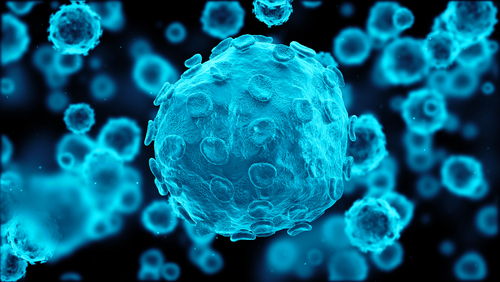Approx 14,000 cases of dangerous neonatal herpes annually during 2010 to 2015: WHO
UNI Apr 03, 2018
According to a new study published by WHO researchers in The Lancet, there were at least 14,000 reported cases of neonatal herpes between 2010 and 2015, with the estimate being 10 in 100,000 live births globally.

Neonatal herpes is a rare but potentially devastating complication of genital herpes during pregnancy, which can cause brain damage, breathing problems, seizures and even death. Neonatal herpes infection can occur when an infant is exposed to herpes simplex virus types 1 or 2 (HSV-1 or HSV-2) in a woman’s genital tract during birth. For the first time, researchers from WHO, the University of Bristol, and the University of Washington have published new estimates in The Lancet Global Health that aim to evaluate the approximate global burden of this disease.
According to the estimates, there were approximately 14,000 cases of neonatal herpes annually during 2010 to 2015; the overall rate was estimated to be around 10 cases per 100,000 live births worldwide. The authors noted that they likely underestimated the number of cases in resource-poor settings, where data on neonatal herpes were limited. Worldwide, most genital herpes is caused by HSV-2, which is sexually transmitted. HSV-1 is typically transmitted orally (causing oral herpes or “cold sores”). HSV-1 can also be transmitted to the genital area through oral-genital contact to cause genital herpes.
The risk for neonatal herpes is greatest when a woman acquires genital HSV infection for the first time in late pregnancy. Women who have genital herpes before they become pregnant are at very low risk of transmitting herpes to their infants. The data used in the estimates were sparse in some areas, particularly for resource-poor settings. The authors of the estimates noted that better quality primary data collection is critical in order to more accurately understand the scale of the global burden of disease. Well-designed and effective health interventions and research, including the development of vaccines, depend upon accurate and good quality data collection.
The authors of the study underline that development of vaccines that have an impact on HSV infection also has the potential to prevent neonatal herpes. Sami Gottlieb, Medical Officer at WHO and the senior author of the study, commented, “Real progress is being made in advancing development of vaccines against genital herpes. A vaccine that could reduce the spread of herpes would result in many positive outcomes – including preventing infants from dying of neonatal herpes”. WHO has released new treatment guidelines for genital herpes simplex virus infections and is working on additional guidance on the management of genital herpes during pregnancy and prevention of neonatal herpes.
WHO and partners are also working to accelerate research to develop new strategies for the prevention and control of genital and neonatal HSV-1 and HSV-2 infections. Such research includes the development of HSV vaccines and topical microbicides. Several candidate vaccines and microbicides are currently being studied.
-
Exclusive Write-ups & Webinars by KOLs
-
Daily Quiz by specialty
-
Paid Market Research Surveys
-
Case discussions, News & Journals' summaries